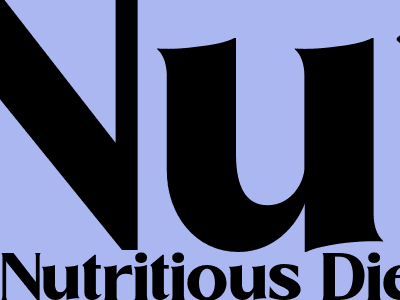How to Create a Nutritious Diet: A Comprehensive Guide
Introduction
Creating a nutritious diet is essential for maintaining good health and well-being. A balanced diet provides the body with the necessary vitamins, minerals, and nutrients it needs to function properly. This guide will provide a comprehensive overview of the key principles of creating a nutritious diet, including food sources, meal planning, and dietary guidelines.
Essential Food Groups
The primary food groups that make up a nutritious diet include:
- Fruits and Vegetables: Rich in fiber, vitamins, and minerals.
- Whole Grains: Provide complex carbohydrates, fiber, and B vitamins.
- Lean Protein: Found in chicken, fish, beans, and tofu; essential for building and repairing tissues.
- Healthy Fats: Found in avocados, olive oil, and nuts; provide energy and support cell function.
- Dairy or Fortified Alternatives: Good sources of calcium, vitamin D, and protein.
Meal Planning and Portion Control
Meal planning is crucial for creating a balanced diet. Consider the following:
- Variety and Balance: Include foods from each food group in every meal.
- Portion Sizes: Use measuring cups or a food scale to ensure appropriate portion sizes.
- Meal Frequency: Eat regular meals throughout the day to maintain energy levels and avoid overeating.
Dietary Guidelines
Several organizations, such as the World Health Organization (WHO) and the U.S. Department of Agriculture (USDA), provide dietary guidelines to promote healthy eating habits. These guidelines typically recommend:
- Limit Processed Foods and Sugary Drinks: These foods are low in nutrients and can increase the risk of chronic diseases.
- Choose Lean Protein and Whole Grains: Prioritize lean protein sources and whole grains over processed meats and refined carbohydrates.
- Consume Adequate Calcium and Vitamin D: These nutrients are essential for bone health.
- Stay Hydrated: Drink plenty of water throughout the day to maintain fluid balance.
Benefits of a Nutritious Diet
Adopting a nutritious diet offers numerous benefits, including:
- Reduced Risk of Chronic Diseases: A balanced diet can lower the risk of heart disease, stroke, type 2 diabetes, and some types of cancer.
- Improved Energy Levels: A nutritious diet provides the body with the energy it needs to function optimally.
- Enhanced Mood: Certain nutrients, such as omega-3 fatty acids, have been linked to improved mood and brain function.
- Stronger Immune System: A nutritious diet supports a healthy immune system, reducing the risk of infections.
Conclusion
Creating a nutritious diet is a fundamental aspect of maintaining good health and well-being. By incorporating a variety of nutrient-rich foods, planning your meals carefully, and following established dietary guidelines, you can provide your body with the essential nutrients it needs to thrive.

Komentar